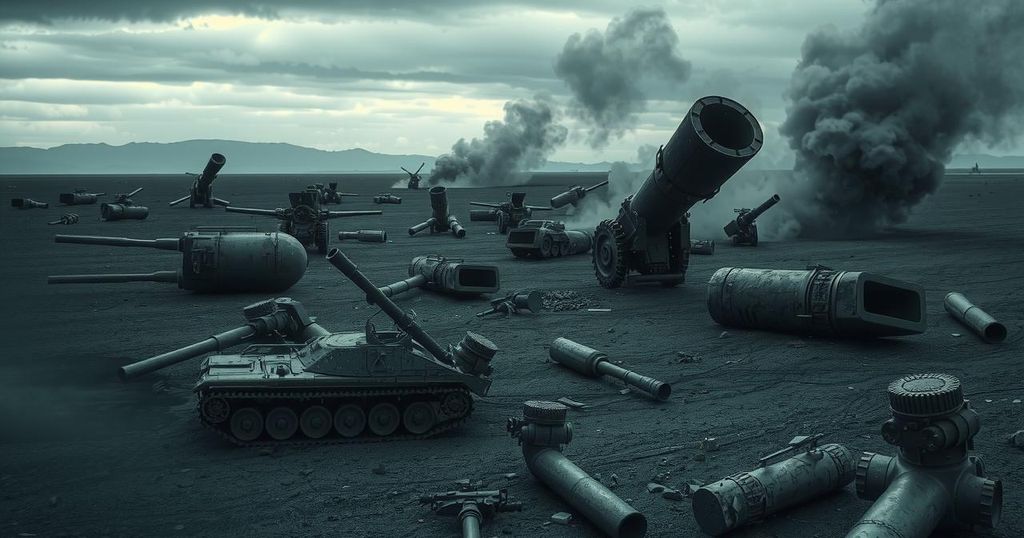British Intelligence: North Korea Lost Over 6,000 Soldiers in Kursk Region

British intelligence reports that North Korean forces have lost over 6,000 soldiers during operations in the Kursk region of Russia, representing more than half of their deployed troops. This significant loss is attributed to exhausting infantry combat against Ukrainian forces, as discussions concerning military collaboration between North Korea and Russia intensify.
Recent reports from British intelligence reveal that North Korean forces have suffered substantial losses in the Kursk region of Russia. Estimates indicate that over 6,000 soldiers have been killed, marking a significant toll for the DPRK contingent there. Initially, around 11,000 troops were deployed to the region, and now, more than half have reportedly fallen in combat against Ukrainian forces.
Details provided by the UK’s Ministry of Defense through their X account indicate that the North Korean losses stemmed from intense infantry assaults. Additionally, a limited number of reinforcements have been dispatched to the Kursk area, likely in response to these heavy casualties. The intelligence analysis suggests that these ongoing military engagements are taxing for North Korean troops, contributing to their high attrition rates.
The situation escalated further when Sergei Shoigu, Secretary of the Russian Security Council, made a notable visit to North Korea in early June. This meeting with Kim Jong-un was Shoigu’s second within three months, emphasizing the growing cooperation between Russia and North Korea, particularly concerning military support in Ukraine.
According to intelligence, Shoigu’s role appears to be central in guiding discussions with the DPRK on their engagement in the Ukraine conflict. Currently, North Korean military operations remain confined to the Kursk region. However, any prospective move to deploy additional troops into Ukrainian territory would likely necessitate approval from both President Vladimir Putin and Kim Jong-un, as noted by the intelligence agency.
In a related context, North Korean officials have articulated that their involvement in the conflict is a demonstration of their commitment to supporting their “fraternal people.” This positioning further complicates the international narrative surrounding the conflict. Notably, Ukraine’s Verkhovna Rada is contemplating an appeal to global bodies, seeking recognition of North Korea as an aggressor state due to its military contributions to Russia’s efforts against Ukraine.
Furthermore, the South Korean Ambassador to the UN has indicated that North Korea supplies nearly half of the ammunition utilized by Russian forces, highlighting the scale of military cooperation between the two nations. As the situation develops, these international dynamics will be critical to monitor.
In summary, British intelligence has highlighted the staggering losses endured by North Korean forces in the Kursk region, marking a serious setback in their military incursions. The complexities surrounding the military alignment between North Korea and Russia add layers to an already volatile conflict as the international community watches closely. Moreover, Ukraine is considering formally recognizing North Korea as an aggressor, reflecting the gravity of the ongoing military engagements.
Original Source: unn.ua








